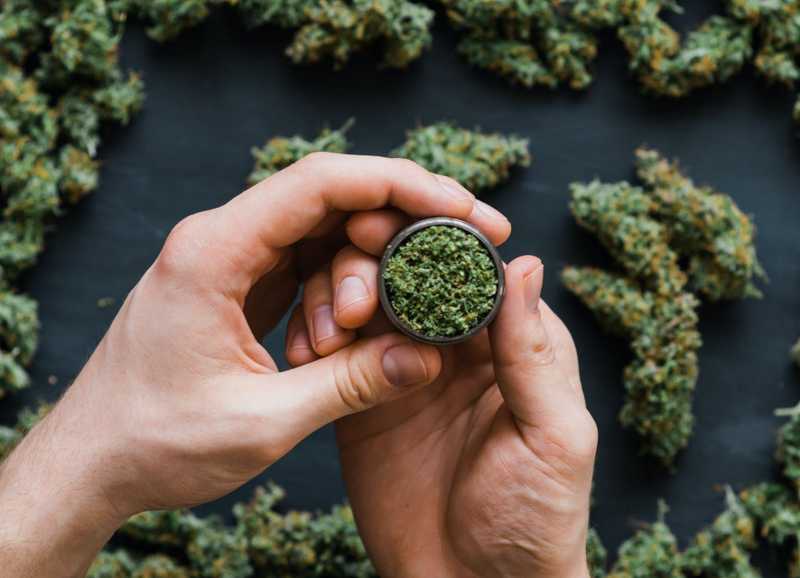When cannabis legalization happened last October, some health industry watchers worried about the effects on medical marijuana. Would a surge in adult-use demand cause supply shortages? Would prices rise? And would new regulations make it harder to obtain cannabis for health issues?
The answer is yes all around.
“As soon as recreational cannabis was legalized, we noticed right away that some of our patients were having trouble finding their medication,” said Dr. Michael Verbora, the chief medical officer for one network of medical cannabis clinics.
RELATED: UNCERTAINTY LINGERS AFTER ONTARIO'S CANNABIS STORE LOTTERY
For its part, a spokesman for Health Canada claimed, “We are working [around the clock] to get product out the door to patients, as well as to the distributors of adult consumer-use cannabis.”
And in one move to help patients stockpile marijuana in anticipation of a shortage, or to change suppliers, the government agency removed a 30-day limitation period to buying cannabis.
Health Canada also said that the more than 300,000 patients who require marijuana for medical needs, and who are registered with licensed sellers, have reasonable access to legal products. It says that the menu of these products will only grow “month by month” as licensed producers ramp up output and new producers come on board.
While there may be temporary shortages of certain products, overall the supply is adequate, the government claimed.
Such talk is reminiscent of the experts before legalization proclaiming that legal supply would outstrip demand, driving down prices and perhaps squeezing out small players in the market. This rhetoric became muted with the national shortages, which are ongoing and which some feel may be with us for years to come.
But this doesn’t mean the pundits were wrong and an oversupply isn’t coming.
It’s Extremely Difficult to Get Marijuana Producer Licences
The official seven-stage application process—which can take more than a year to complete—to obtain a marijuana producer licence is "not for the faint of heart," warned one lawyer, who compared it to other highly regulated industries like pharmaceuticals or medical devices.
Early on, Health Canada received some 1,630 producer applications:
- 841 were returned for being incomplete.
- 265 were refused outright.
- 69 were withdrawn by applicants.
- 414 applicants had their fingers crossed.
"Applications are assessed on a case-by-case basis, and all personnel listed on the application must pass a stringent security clearance process," said a Health Canada spokesperson in an email to the CBC.
"In addition, each application must demonstrate how the security measures, good production practices, and record keeping at their production facility will comply with the requirements listed in the regulations, which is currently verified during a pre-licence inspection by Health Canada."
Hundreds of Licensed Producers Are Waiting for Approval
According to Canadian Lawyer magazine, as of December 2018, there were about 130 licensed cannabis producers in Canada. But the number we want look at is the number of licences waiting to be approved: more than 500.
While these producers aren’t getting approved as fast as many would like, and once they do, it may take as much as a year to get up to production speed, there may be significant supply coming as the approvals are grudgingly doled out.
When? Well, that’s the $6 billion question.
Canadian Lawyer holds out the tantalizing possibility that the shortages could be replaced by a sudden abundance of product on the market, as soon as this spring, leading to “lower prices and consolidation.”
Well, spring is coming pretty quickly. Other observers are eyeing 2020 as the year things turn around.
“It’s moving fairly quickly, and everyone is trying to get product to market, especially with the demand the way it is now and lack of supply. There is a real push for people to get through the application process and meet some of that demand,” Michael Posnikoff, partner in the business law group at Norton Rose Fulbright LLP in Vancouver, told Canadian Lawyer.
Looking at Cannabis Shortages & Oversupply in the U.S.
Once you have more players producing more product, demand can turn to glut as it sometimes has in the parts of the United States where cannabis is legal. For example, in Oregon production has outstripped consumption by a fair margin, so that two years after legalization, 69% of its supply is stockpiled, unconsumed.
A report released last summer by the Oregon-Idaho High Intensity Drug Trafficking Area program claims that “a glut of cannabis stockpiles stemming from overproduction has caused a 50% annual price drop since 2016.”
If Canada’s prices go down in a similar manner, then this could be good news for cannabis consumers, who are grumbling about the costs of legal marijuana right now. It could also serve to finally hurt the illicit market—one of the stated aims of legalization—which depends on legal shortages and bad customer service to stay in business.
Production increases could also serve to address the great need of the marijuana edibles market, with its legalization coming in October 2019. More product could also meet the growing overseas market for high-quality, tightly regulated medical marijuana.
So, while it’s difficult to talk about this potential cannabis bounty amid shortages, supply does have a real shot at more than meeting our demand in future.
Photo credit: Lifestyle discover/Shutterstock.com
